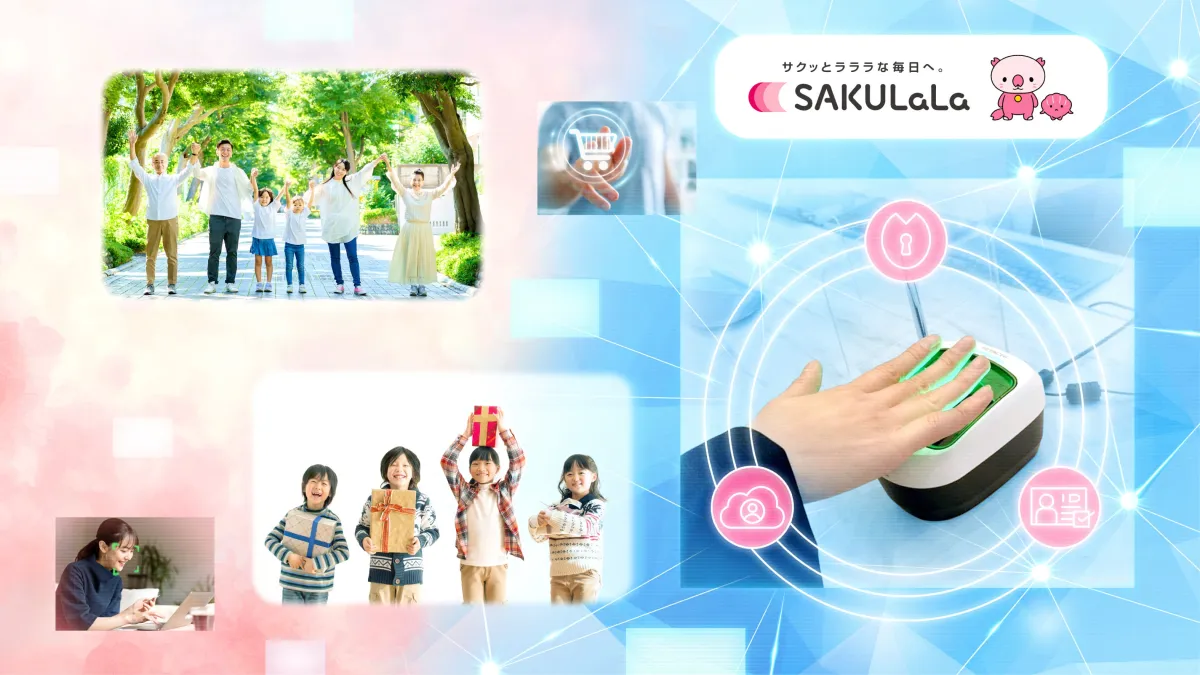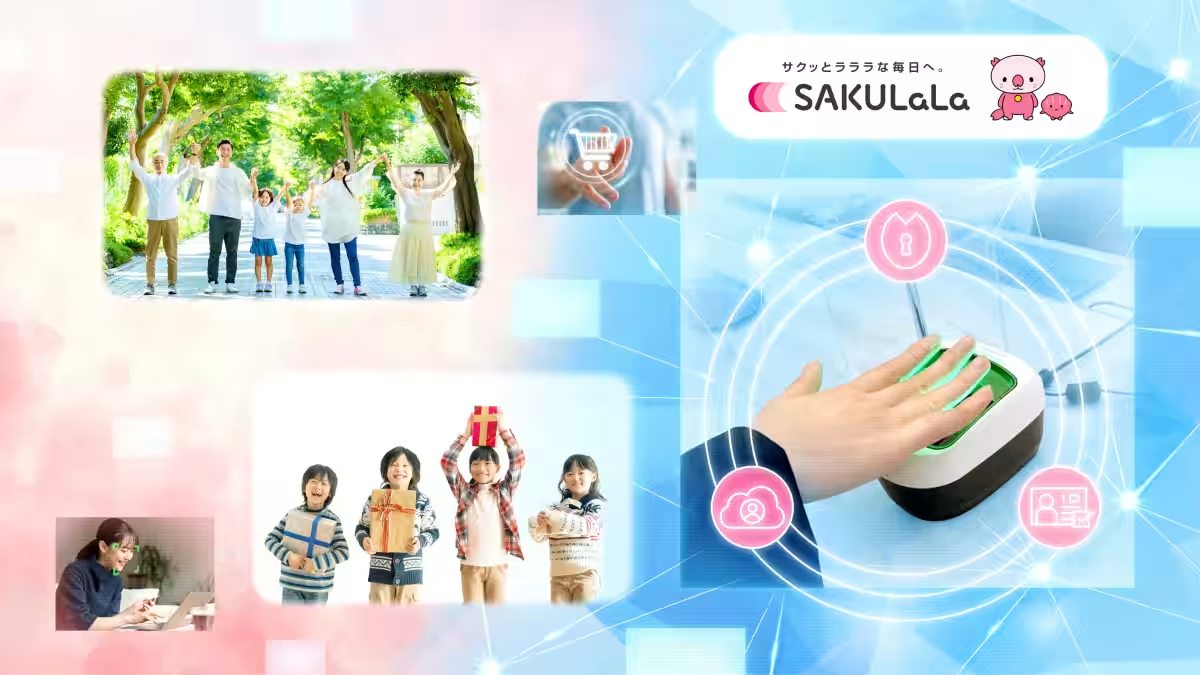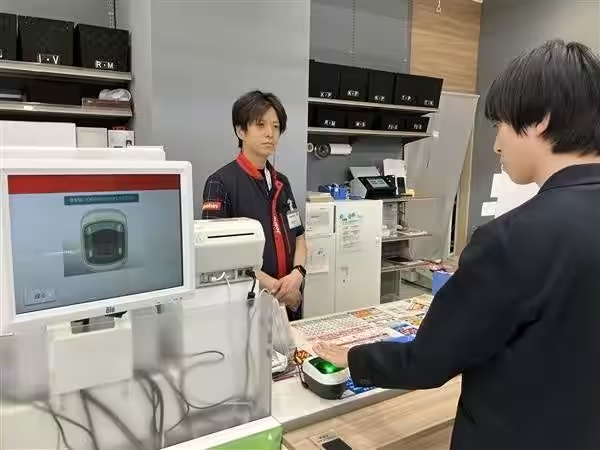

Unlocking a Seamless Shopping Experience: Introducing SAKULaLa for Digital Inclusion
Bridging the Digital Divide with SAKULaLa
In a significant stride towards digital inclusion and enhanced shopping experiences, Joshin Electric Co., Hitachi Ltd., and Tobu Railway have rolled out a new biometric service, known as SAKULaLa. This service aims to simplify the shopping process while also tackling issues such as fraudulent purchases, especially in scenarios involving limited availability products.
A New Era of Shopping Begins
Set to make waves across various sectors, the SAKULaLa service was first introduced at two Joshin stores in Osaka—Nihonbashi Store and Super Kids Land—from April 24. This pioneering service allows customers to earn points and confirm their identities using just their fingers, creating a smooth, safe, and user-friendly shopping environment.
The SAKULaLa system is designed with accessibility in mind. Even those who may not be technologically savvy can enjoy the benefits of this digital service. A simple registration process allows users to utilize the service effortlessly thereafter by simply placing their finger on a designated terminal. This means that, in the future, when SAKULaLa expands across other industries, customers will not need to register again and can shop hands-free while enjoying loyalty points.
Tackling Fraud in Purchases
A key advantage of SAKULaLa is its potential to prevent fraudulent purchases, particularly for products with limited quantities. The biometric verification ensures that each purchase is tied directly to the individual customer, drastically reducing instances of unauthorized duplicate purchases. This, in turn, opens up opportunities for more genuine customers to obtain exclusive products.
Future Implementation and Expansion Plans
Joshin plans to gather customer feedback from the initial rollout before transitioning the SAKULaLa system across all its stores. Additionally, further enhancements are in the works, including strong identity verification measures on the Joshin web store. This strategic partnership aims to provide a seamless shopping experience both in-store and online, aligning with Joshin's mission to cater to customers' everyday lives.
Collaborative Efforts for a Comprehensive Infrastructure
Hitachi and Tobu Railway are also focused on enhancing social infrastructure through SAKULaLa. Their goal is to make life easier and richer for the community. Their collaborative development extends beyond just electronics retailers to include supermarkets, dining establishments, and other sectors, working collectively to resolve social challenges such as labor shortages and digital gaps.
Background of the Initiative
The push for digital transformation in retail has been accentuated by a shift in customer expectations for convenience and satisfaction. Despite advancements, many struggle with technology, making them lose out on potential benefits. By employing biometric verification methods and ensuring high safety standards through the adoption of SAKULaLa, Joshin aims to tackle these challenges head-on.
With a focus on reliability and customer satisfaction, Joshin believes SAKULaLa could significantly enhance shopping experiences. Through continuous enhancement and adoption of new technologies, the vision is to create a more resilient shopping environment that caters to every demographic, embracing sustainability and inclusivity.
How SAKULaLa Works
To use SAKULaLa, customers must first register for both a Joshin card and the SAKULaLa service. Once these two accounts are linked, they can shop seamlessly at designated registers without needing to present their membership card or use the Joshin app’s barcode repeatedly. Just a simple finger tap on the device allows customers to accumulate and apply their points effortlessly.
Exploring SAKULaLa's Capabilities
SAKULaLa operates on a sophisticated biometric system that eliminates the need for smartphones or IC cards to access personal data securely. Through a reliable biometric framework, it facilitates services such as payments, point allocation, and identity verification without compromising security. With the integration of both finger vein and facial recognition technologies, SAKULaLa is designed to meet diverse needs across many industries, paving the way for a versatile approach to reliable shopping experiences.
Conclusion
This innovative service not only symbolizes a leap towards the future of retail but also embodies a commitment to resolving deeper societal challenges. As Joshin, Hitachi, and Tobu Railway continue to refine and expand SAKULaLa's capacities, they reaffirm their dedication to fostering a more inclusive and efficient shopping ecosystem. As the digital landscape evolves, initiatives like SAKULaLa will ensure no one is left behind in the digital revolution.


Topics Consumer Products & Retail)










【About Using Articles】
You can freely use the title and article content by linking to the page where the article is posted.
※ Images cannot be used.
【About Links】
Links are free to use.